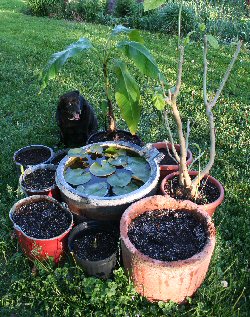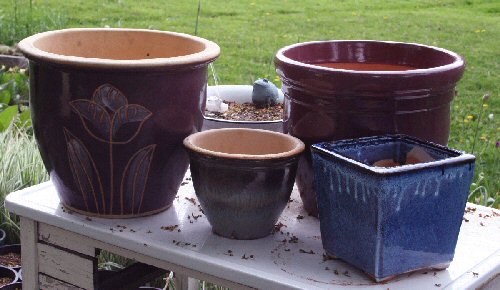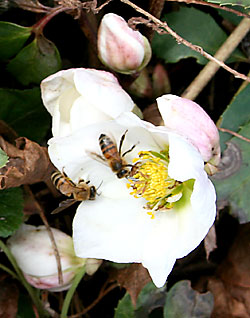 I think I have a new favorite blog, or at least one that is going to chew up a lot of exploration time over the coming weeks: Paradis Express.
I think I have a new favorite blog, or at least one that is going to chew up a lot of exploration time over the coming weeks: Paradis Express.
It all started innocently enough (as it usually does) when I spotted a comment of Delphine’s over at the Human Flower Project where she wondered if there was a French version. Anyone who speaks French and visits HFP must have a blog worth visiting.
I was not disappointed.
Delphine is nothing if not prolific, approaching 400 posts already for the year. Great images in each feature gardeners and gardens, artists gardeners will love, reviews of other blogs gardeners will love, whimsy and even (thankfully only one image that I spotted) footwear.
I gather that Delphine is an artist herself. But I’m not sure. Did I mention the text is all in French? It doesn’t matter that my three years of high school French is no longer serving me well. If I’m really intrigued by a post, there’s always the babel fish translator to help me get the gist of the text.
Here’s what Delphine had to say about Ellis Hollow (via babel fish):
Craig Cramer is a specialist in communication at the Department in Horticulture in the university in Cornell. Ellis Hollow, its blog personal, is also the name of its piece (see photo sight of plane) with Ithaca, N.Y., south of the area of the lakes. It is according to him, a small pocket frozen always very cold and very exposed with the roe-deers, this is why the garden is cloturé.Ca does not prevent it from cultivating ears of elephant and this superb volubilis “Fujii Mount” do not miss the photographs by its article on the garden-center Motherplants, specialist local in the roof vert.
I’m all about protecting the ears of elephant from the roe-deers.
I will always be endebted to the woman who first pointed me to the Vegetable Orchestra:




 Colony collapse disorder (CCD) continues to get ink all over. This morning, there was a
Colony collapse disorder (CCD) continues to get ink all over. This morning, there was a